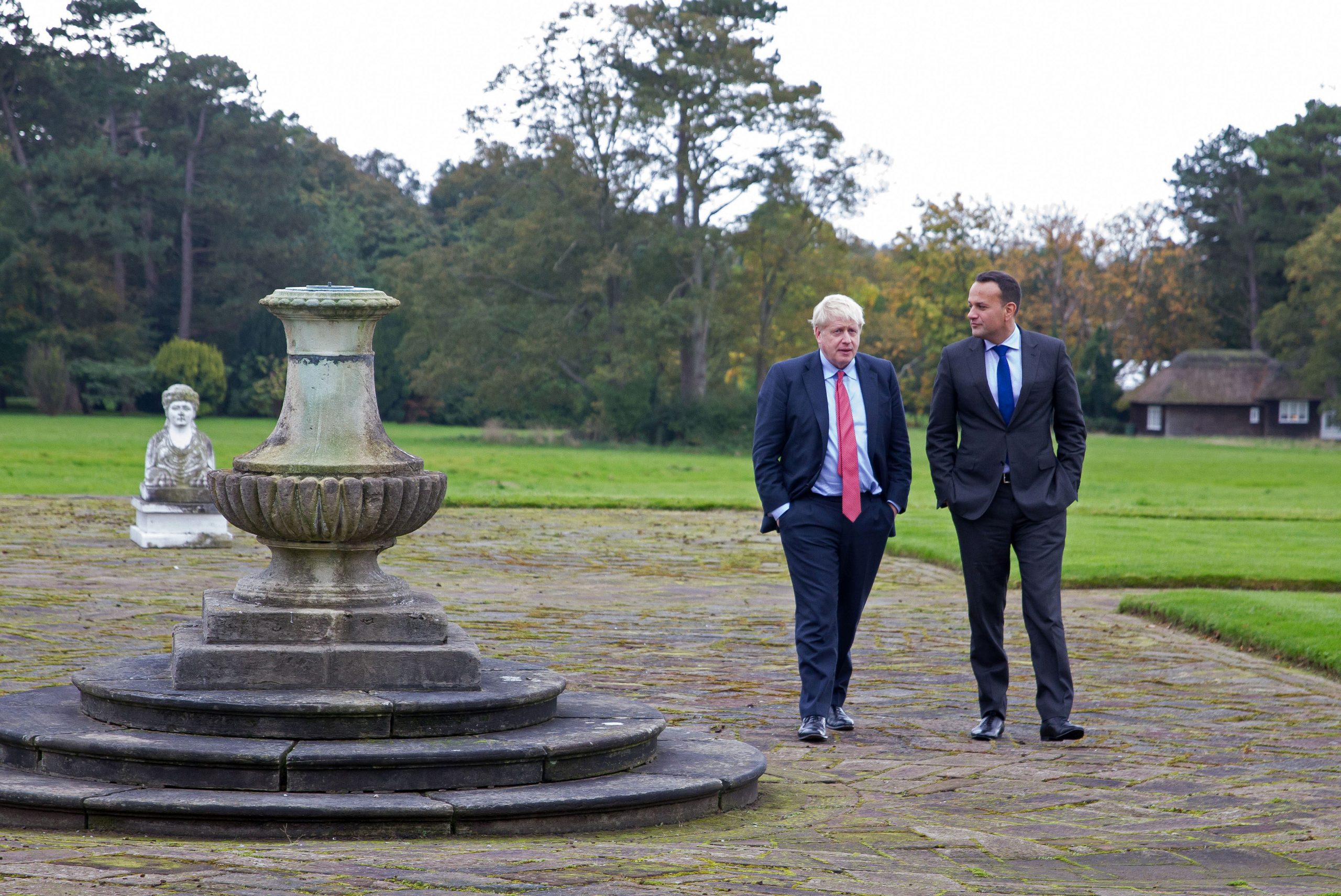
Could a Brexit deal be in the offing after all? After a crisis summit on the Wirral, Boris Johnson and Leo Varadkar have put their names to a conciliatory statement talking up the chances of a compromise on the Irish border.
The Prime Minister and taoiseach have had a detailed and constructive discussion. Both continue to believe that a deal is in everybody’s interest.
They agreed that they could see a pathway to a possible deal. Their discussion concentrated on the challenges of customs and consent.
They also discussed the potential to strengthen bilateral relations, including on Northern Ireland.
They agreed to reflect further on their discussions and that officials would continue to engage intensively on them.
Following their discussions the taoiseach will consult with the Taskforce 50 and the Brexit Secretary Stephen Barclay will meet Michel Barnier tomorrow morning.
That the Prime Minister and the taoiseach’s meeting broke up with an agreed form of cautiously optimistic words rather than yet more public disagreement is a sign that, for now at least, both sides are taking a break from what Donald Tusk described as the “stupid blame game” ahead of 31 October.
Even more significant than the existence of the words is their content. That both Dublin and Westminster believe there is a “pathway to a possible deal” is axiomatic: the issue is that neither wants to take the other’s preferred path.
On no issue is this truer than the two issues Johnson and Varadkar discussed at length – customs and consent. At present, there is no way of bridging the yawning gap between their two positions without one side losing the argument. It is a binary choice.
The Prime Minister’s proposed solutions involve new physical infrastructure on the island of Ireland and the departure of Northern Ireland from the EU customs union. The taoiseach believes only something like the much-maligned backstop can solve the problem, which flies in the face of everything Johnson has ever said – and is anathema to his partners in the DUP.
Then there is the even knottier question of securing the consent of the people of Northern Ireland for whatever new arrangements are agreed. Johnson’s initial suggestion was for Stormont to vote on whether it should stay aligned with EU single market rules after four years, which would have handed the DUP an effective veto. In response, Dublin and Brussels suggested only a double majority of nationalist and unionist assembly members would do – effectively a Sinn Fein veto on the DUP veto. Replacing any legislative lock with a referendum would serve a similar purpose.
So what are we to conclude from the hint that movement could be coming? Dublin has never really believed that a deal was likely before 31 October, and today’s statement goes nowhere near as far as saying so. But its focus is nonetheless telling. If a deal is to be done this side of an election or indeed ever, it will require movement from Johnson in a direction – or directions – that the DUP will not like.
But, looking at the numbers in a parliament in which Arlene Foster’s MPs no longer hold the whip hand, watching even the fundamentalist wing of the European Research Group soften their opposition to a negotiated settlement, and hearing 19 Labour MPs practically beg to be given any deal to vote for, is it really so implausible that he is at least thinking about going there?





